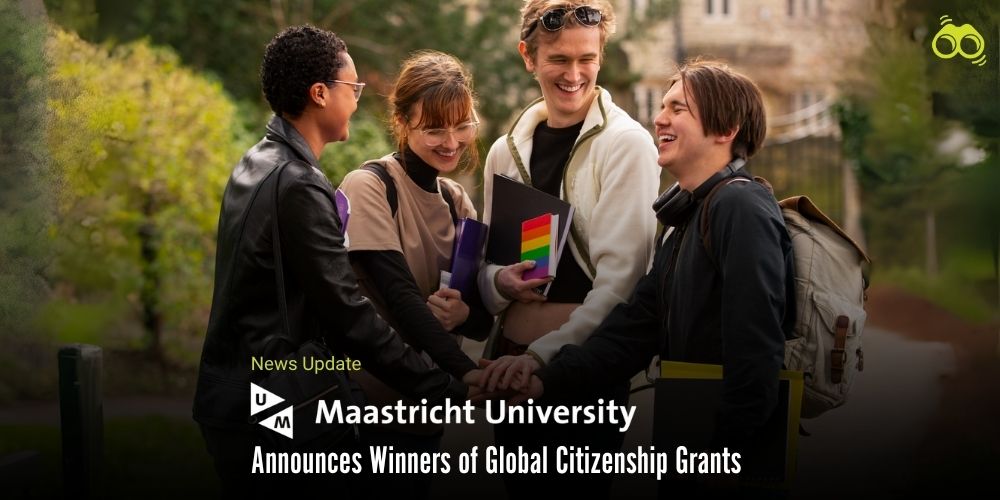Global Citizenship in Focus as Maastricht University Funds Faculty-Led Projects
Empowering Future Changemakers: UM Supports Projects on Sustainability and Equity
In a purposeful step towards advancing global awareness in higher education, Maastricht University has secured funding for three forward-thinking projects through the Global Citizenship for Sustainable Development network. These projects are intended to enhance global citizenship competencies among both students and faculty, thereby reinforcing the university’s ongoing commitment to sustainability, cultural understanding, and social responsibility.
Each project was selected based on its potential to benefit all faculties and its alignment with the network’s 'hospitable' framework, which outlines key competencies essential to fostering global citizenship. As part of the nomination process, GCEd faculty liaisons were required to demonstrate the proposals’ broad applicability, institutional relevance, and potential to support sustainable development goals across the university. Moreover, the Global Citizenship for Sustainable Development network functions as a collaborative platform, bringing together various internal stakeholders, including the Diversity & Inclusion Office, GCEd, Sustainable Stakeholder Engagement (SSC), Sustainable UM 2030, the International Classroom, EDLAB, and liaison officers from each faculty to exchange ideas, support implementation, and maximise impact.
Among the funded projects is “Transdisciplinary Education: Designing Tomorrow,” led by Annechien Deelman (EDLAB) and Hans Savelberg (FHML). This initiative seeks to explore how transdisciplinary teaching can better prepare students to address pressing global issues, often referred to as "wicked problems", such as poverty, migration, inequality, and climate change. The project is based on Maastricht University's CCCS model and GCEd framework to develop ethical, innovative, and empathetic graduates capable of real-world problem solving. To this end, the project team will collect feedback from students and staff regarding effective learning practices and, based on their findings, will design and pilot a course intended to equip students with the necessary global competencies. Additionally, the team will identify challenges faced by educators in adopting this model and propose practical improvements to enhance teaching delivery and impact.
The second project, titled “Online Module for Global Citizenship in International Business and Beyond,” is being led by Inken Gast, Laurie Delnoij, and Ainsley Loudoun. This initiative will develop a scalable digital learning module aimed at encouraging over 700 students per year to reflect critically on their global citizenship during international study experiences. The module will also be offered as an Open Educational Resource, thereby expanding its accessibility and long-term utility.
The third project, “GCEd Vision Days,” proposed by René Brauer and Marloes Menten from SBE, focuses on supporting faculty in embedding Global Citizenship Education into their pedagogical approaches. Through interactive workshops held during departmental ‘hay days’, the initiative will aim to integrate GCEd into the academic identity of staff, promote sustainable institutional change, and provide resources and incentives to ensure long-term engagement. Collectively, these projects reflect Maastricht University’s determination to foster an inclusive, globally engaged academic environment that prepares future leaders to shape a more just and sustainable world.
Editor’s Note:
Maastricht University has secured funding for three global citizenship projects, highlighting its dedication to preparing students and faculty for an interconnected world. These initiatives support the integration of key values such as ethical awareness, cultural sensitivity, and social responsibility into academic practice. By working across faculties and drawing on interdisciplinary methods, the projects are designed to prepare graduates who are academically capable and civically engaged and globally minded. Furthermore, the university's participation in the Global Citizenship for Sustainable Development network highlights its alignment with broader international goals and its dedication to fostering inclusive, forward-thinking educational environments. The projects’ focus on transdisciplinary learning, digital accessibility, and faculty development ensures both institutional impact and long-term sustainability. In advancing these objectives, Maastricht University reaffirms its position as a leader in shaping responsible, globally aware citizens.
Skoobuzz underlines that these three projects embody a multifaceted commitment to educating responsible, engaged, and globally competent citizens prepared to shape a more just and sustainable future.














0 Comments (Please Login To Continue)